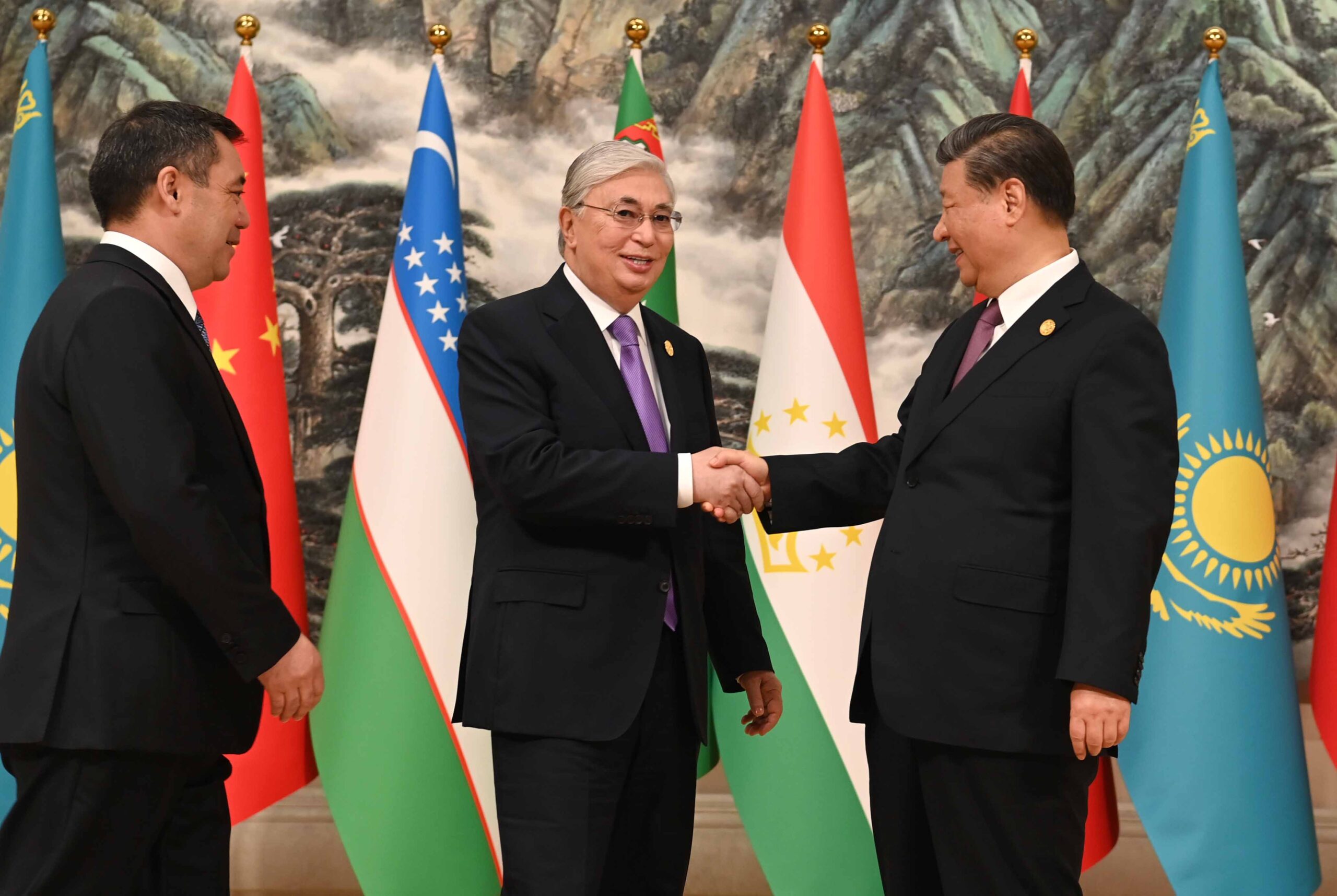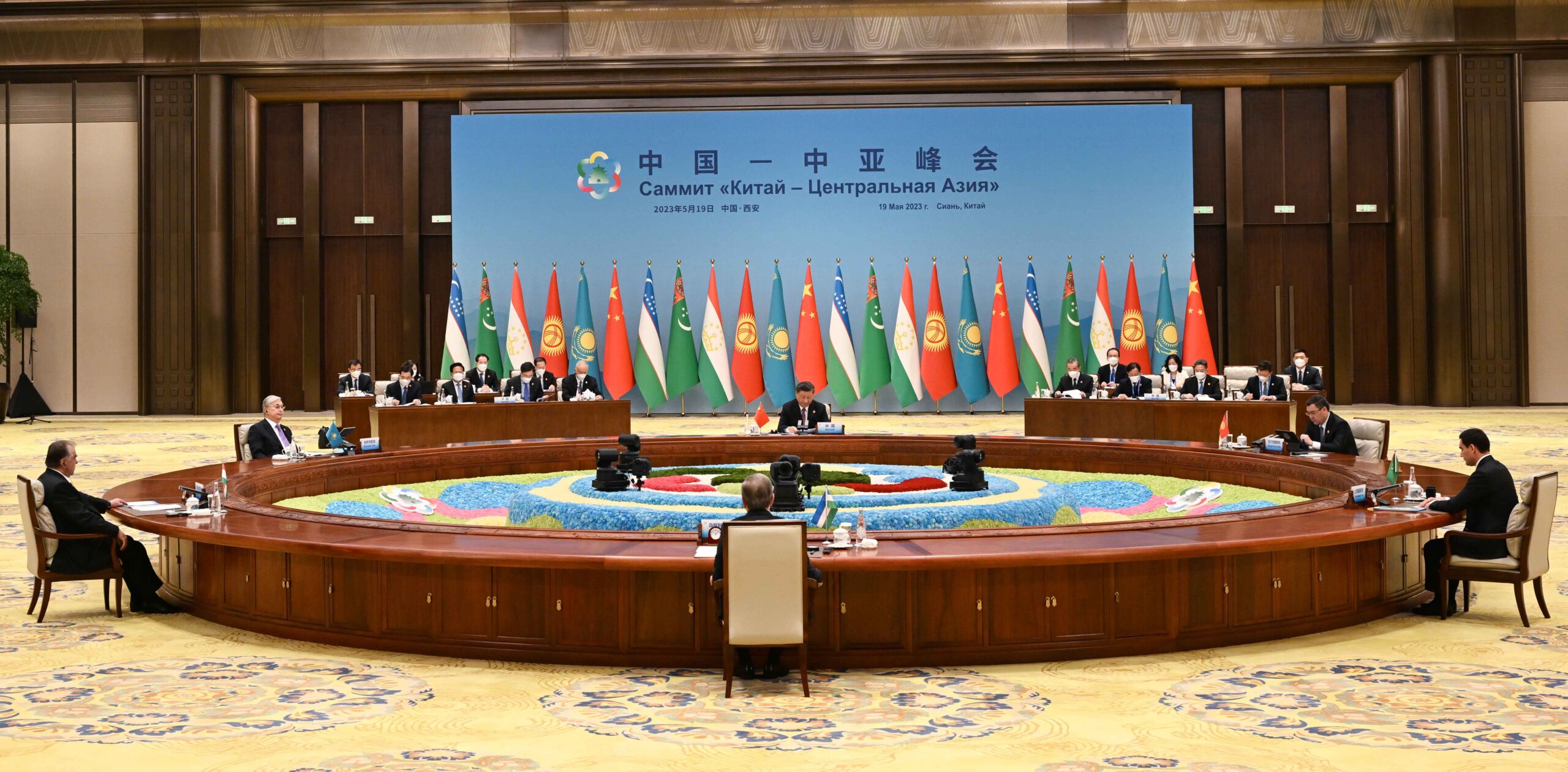ASTANA – President Kassym-Jomart Tokayev outlined the main areas for cooperation at the China-Central Asia Summit that resulted in the signing of the Xian declaration on May 19, reported the Akorda press service.

Kassym-Jomart Tokayev and Xi Jinping at the China-Central Asia Summit. Photo credit: Akorda.
“The initiatives I propose confirm Kazakhstan’s readiness to strengthen our “all-weather” relations and multifaceted cooperation,” Tokayev said.
The next China-Central Asia Summit will take place in Kazakhstan in 2025.
Increasing trade and E-commerce potential
According to Tokayev, considering the positive dynamics of intra-regional economic relations, there are all conditions to increase trade with China to $100 billion by 2030 from $70 billion in 2022.

The next China-Central Asia Summit will take place in Kazakhstan in 2025. Photo credit: Akorda.
Tokayev urged other Central Asian countries to harness the potential of the Khorgos International Center, which reopened last month after a three-year pandemic-related hiatus. The President announced plans to construct a second dry port there.
Given the Central Asian countries’ competitive position, Kazakhstan advocated taking advantage of China’s largest marketplaces, such as Alibaba Group and JD.com, to jointly promote products. Tokayev emphasized the country’s efforts to build new customs warehouses to reduce delivery time. According to him, this venture can be coordinated with the launch of a C5 + China unified electronic trading platform.
Transport and logistics infrastructure development
Tokayev said Kazakhstan will continue the work of the Belt and Road Initiative, which proved its effectiveness on a global scale over a decade since it was put forward by President Xi in Astana. The opening of the third railway crossing on the Kazakh-Chinese border soon would be a major step in this direction.
Kazakhstan plans to systematically increase the Trans-Caspian International Transport Route (TITR) capacity connecting China-Central Asia-Europe’s key corridor by introducing digital solutions and infrastructure upgrades.
Tokayev stressed the Kazakhstan-Turkmenistan-Iran railway’s potential unveils excellent prospects for Central Asian countries as one of the shortest routes from East Asia to the countries of the Persian Gulf.
Deepening industrial cooperation
To deepen industrial cooperation, Tokayev suggested launching a Central Asia-China Industrial Cooperation Plan, considering the advantages and needs of the region.
He emphasized the broad prospects of the automotive industry between Kazakhstan and China.
“The agreements were signed yesterday on the launch of small-node assembly of top Chinese cars in our country. Work is underway on the appropriate infrastructure for electric charging stations in Kazakhstan,” he said.
Tokayev invited Chinese companies to create automotive clusters in those Kazakh regions that proceeded in the top Chinese brands’ production.
Energy, oil, and gas sectors
The President revealed plans to increase the throughput capacity of the Kazakhstan-China oil pipeline through the existing Atyrau-Kenkiyak and Kenkiyak-Kumkol pipelines.
“The development of gas processing capacity and the gas transmission system are top priorities for Kazakhstan. In this regard, the construction of the second string of the Beineu-Bozoy-Shymkent gas pipeline and a gas processing plant at the Kashagan field with a capacity of four billion cubic meters per year is paramount,” Tokayev said.
Cooperation in agriculture and efficient use of transboundary water resources
Kazakhstan is keen to increase the volume and diversify the range of agricultural products for export to neighboring countries. Tokayev proposed establishing a Joint Food Hub based on the Khorgos International Center, focusing on introducing digital and green technologies in the agro-industrial complex.
Tokayev expressed concern about climate change that poses severe risks to Central Asia, leading to potential freshwater scarcity. He proposed creating a program to bring new technology into the water management industry to utilize water resources efficiently.
Regional security and stability
The President emphasized that Kazakhstan supports China’s peaceful foreign policy toward Central Asia and appreciates its contribution to regional stability and security.
“We consistently assert that Central Asia is a creation place. We oppose turning the region into a place of geopolitical confrontation,” he said.
President Xi’s Global Security Initiative plays “a pivotal role in ensuring the world’s sustainable development and serves as a decisive response to the unprecedented challenges of our time,” Tokayev stated. He also mentioned China’s constructive position in resolving the Ukrainian crisis and urged to support the efforts of the international community to avert a humanitarian crisis in Afghanistan.
China’s President Xi Jinping, President of the Kyrgyz Republic Sadyr Japarov, Tajikistan’s President Emomali Rahmon, Turkmenistan’s President Serdar Berdymukhamedov, and Uzbekistan’s President Shavkat Mirziyoyev also delivered remarks at the summit.

